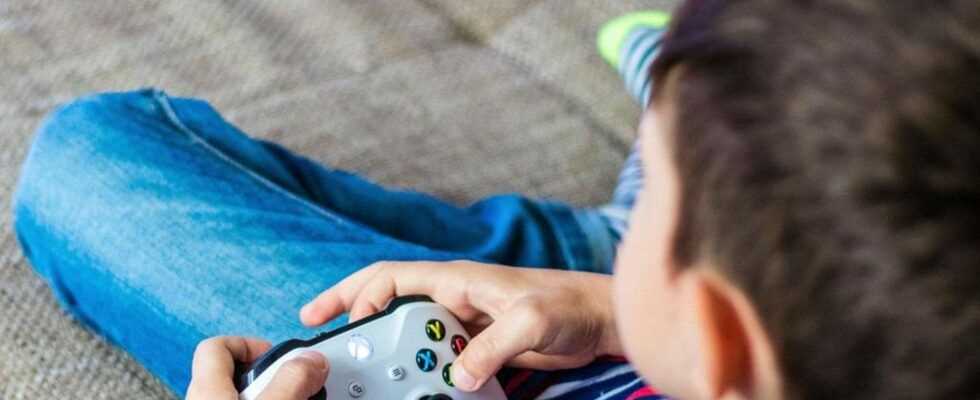Children spend significantly more time playing video games and social media during the Corona crisis. An expert thinks so.
Is media addiction a particular danger for children in the corona crisis? DAK-Gesundheit and the University Medical Center Hamburg Eppendorf (UKE) together with search experts are examining for the first time in a longitudinal study "the pathological use of computer games and social media according to the new ICD-11 criteria" of the World Health Organization (WHO), like the health insurance company on Wednesday ( July 29, 2020). The effects of the corona pandemic should also be taken into account. Around 1,200 families take part in the study.
700,000 children affected
According to the first interim results, the gaming behavior of almost 700,000 adolescents and children is "risky or pathological", according to a current press release. On weekdays, the playing time during the corona lockdown increased by 75 percent compared to autumn 2019. During the week, the average time spent on video games climbed from 79 to 139 minutes per day. An increase of almost 30 percent to 193 daily minutes was recorded for the weekend.
Social media such as Instagram, Facebook or Twitter are also similarly problematic. In September 2019, 8.2 percent of children and adolescents surveyed also showed "risky use", which corresponds to an estimated 440,000 10- to 17-year-olds. Pathological use was found in 3.2 percent – about 170,000 girls and boys. The amount of time spent on social media has increased from 116 to 193 minutes on weekdays during the lockdown – and thus by 66 percent.
A final survey in spring 2021 should show whether school closures and restricted leisure activities actually result in growing media addiction. As a pilot project together with the Professional Association of Pediatricians (BVKJ), the health insurance company in Bremen, North Rhine-Westphalia, Saxony, Saxony-Anhalt and Thuringia would like to offer an additional preventive medical check-up from October 1, 2020. As of August, those affected and their families will also receive help and information on topics such as video game, online and social media addiction on the website "www.computersuchthilfe.info".
Wonderful technologies with pitfalls
In April, an expert had already warned of possible dangers in a conversation with the news agency spot on news. The educational scientist and family therapist Jürgen Eberle, founder of the Media Addiction Practice in Munich, explained: As "wonderful" technologies as smartphones, tablets, game consoles and TVs, one has to "deal with these things with moderation, because the dose is known to make the poison! A key sign of addiction is when something continues to be consumed even though you are already taking risks or being harmed, and so it is with digital media. "
If young people interact with the devices for many hours a day, according to Eberle, "this is often seen in other areas of life into which less and less energy is flowing. School performance deteriorates, friendships are no longer cultivated or sports are neglected."
The content is also important
In addition to the time of use, the content of video games is also important. "You enter the world through the media that influence the personal development of young people," explains the educational scientist. "Especially with computer games, often more of a simulation of reality than a game, you can try out a lot, but learning always takes place and new thinking and behavior options are practiced." He believes it is important for parents to keep an eye on their children and to know which media they are consuming.
Although media use is part of everyday life, it is "very important that the parents influence the consumption of the media content. The games should be appropriate to the age and level of development of the adolescent. After some time, for example an hour, there is an urgent need again Media break take place so that you can feel yourself again and also the community in which you live. "
At its core, "media addiction is a disruption of relationships and relationships". Those affected are "no longer really in a relationship with the real world, know less and less how to have beautiful experiences here and therefore need the virtual lucky charms to get through their everyday lives." For this reason, parents should make sure, among other things, "that enough beautiful experiences are created together and that there is enough variety."
